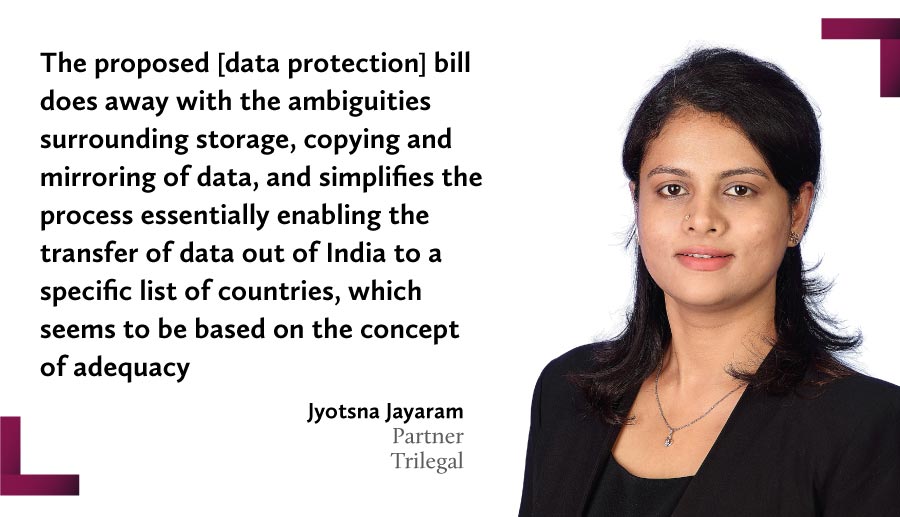Should India tighten its grip over international technology companies, or will this approach backfire and cause them to reconsider growth plans in India? Freny Patel reports
India is entering 2023 with policy changes that could tighten the government’s grip on global and domestic technology companies. The question is whether the time is ripe for India to mimic its counterparts in the West, especially when the country needs foreign capital as it aims to become a USD5 trillion economy by 2024.
As India tables new policies in 2023, global tech giants – already under intense regulatory scrutiny worldwide – see the domestic government, regulators and local lobby groups targeting them to rein in their increasing dominance.
One of the key amendments in the draft Competition Amendment Bill, expected to be passed in the budget session of parliament, is aimed at capturing the M&A activity of the new age economy through the concept of a deal-value threshold set at INR20 billion (USD250 million).
Technology giants like Amazon, Apple, Google, Meta, Twitter and others will also find themselves at the receiving end should a proposal of the parliamentary standing committee on finance to introduce , similar to the EU’s Digital Market Act, see the light of day.
Aimed at curbing anticompetitive practices in digital markets, the committee had proposed ex ante regulations and a new category of intermediaries labelled “systemically important digital intermediaries”, which could negatively influence competitive conduct in the digital ecosystem.
“India has joined the world laboratory when it comes to regulating Big Tech, there are so many cross-border similarities, but as many Indian specificities,” Payal Malik, economic adviser and head of the economic division at the Competition Commission of India (CCI), said at a competition law conference last year.
Malik advocates forward-looking regulations to complement existing antitrust rules in light of the rising number of cases in the digital economy.
As rules of engagement between the platforms and their users are exploitative, ex ante regulations will help address issues related to the imbalance in bargaining power, asymmetric information, and gatekeepers in the digital economy, she says in a commentary piece in the Financial Express.
However, the Asia Internet Coalition (AIC) has criticised the digital competition bill, saying that the recommendations proposed would restrict competition and innovation. The AIC is an industry body comprising leading internet and technology giants including Google, Amazon, Meta, Booking.com, Expedia, Grab, LinkedIn, Twitter, Yahoo and Apple.
The coalition’s managing director, Jeff Paine, has said India’s government should first observe whether overseas regulatory developments have brought about desired benefits, which could outweigh the costs in light of the proposed bills. He was referring to both the Digital Competition Act and India’s fourth attempt to draft the Digital Personal Data Protection Bill.
Data localisation controversy
While the latest draft of India’s data protection bill could be seen as a win for global technology majors that had lobbied hard against data localisation, the inclusion of “white listing” certain notified countries and territories for the free flow of data has created more uncertainty.
The Digital Personal Data Protection Bill gives the government the power to notify such countries where cross-border data transfers may be executed, on an assessment of factors to be specified at a later stage.
This might be a cause of concern for companies storing their data outside India since the factors of assessment are yet to be specified, says Bagmisikha Puhan, a New Delhi-based associate partner at TMT Law Practice.
Until such time that countries are notified, the question remains whether companies should operate under the seeming system of data localisation, says Puhan.
“Country-by-country discussions could result in time-consuming conversations,” she points out, suggesting instead that the transfer of personal data outside India should include the option to approve blocks of countries or nations already adhering to multilateral regimes that protect data privacy, or that have been adjudged as adequate destinations.
“This could speed critical data transfer arrangements, add business certainty and continuity, and thereby enhance India’s investment climate, promoting India as a data centre and analytics hub,” says Puhan.
If the list of restricted countries is narrow and limited only to a few jurisdictions, it may not harm data transfers and digital trade, says Trilegal’s Bengaluru-based partner, Jyotsna Jayaram.
“The proposed bill does away with the ambiguities surrounding storage, copying and mirroring of data, and simplifies the process essentially enabling the transfer of data out of India to a specific list of countries, which seems to be based on the concept of adequacy,” says Jayaram.

You must be a
subscribersubscribersubscribersubscriber
to read this content, please
subscribesubscribesubscribesubscribe
today.
For group subscribers, please click here to access.
Interested in group subscription? Please contact us.


























